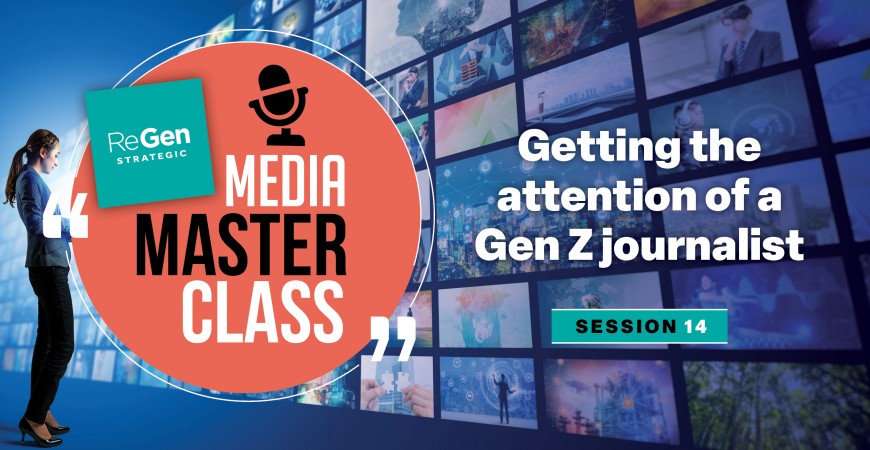A new era of journalists is emerging in the newsroom. Gen Z, born between 1997 and 2008, has grown up with the digital world at their fingertips. As a result, they have picked up some unique traits along with a fresh approach to journalism.
As a member of Gen Z and a former journalist, I’ve noticed my work style has often differed from some of my older colleagues.
While technology has given us unlimited access to information, it has also seemingly shortened attention spans. Regular exposure to digital environments has conditioned Gen Z to crave new content at an unprecedented pace. If something doesn't capture our interest immediately, countless other distractions are vying for our attention.
To catch the eye of a Gen Z journalist, your media releases need to be more compelling and engaging than ever before.
Firstly, your email subject line needs to be interesting to ensure a Gen Z journalist even opens it. It should be both newsworthy and succinct, capturing the essence of your story in a way that immediately piques their interest.
This generation is accustomed to multitasking and consuming information rapidly, often skim reading to digest content quickly. To cater to this, consider incorporating bullet points at the start of your media release to summarise key points. This allows the journalist to quickly determine if the release is worth reading further. Although these bullet points are often an afterthought, they are frequently the first, and only, thing a Gen Z journalist reads, so it's crucial to get them right.
When sourcing stories, Gen Z journalists naturally turn towards social media to see what's trending. Therefore, it's important to consider how your brand appears online. A strong digital presence adds credibility to your brand and allows you to connect with both journalists and your audience.
The most popular social media platforms for Gen Z Australians are TikTok, YouTube, and Instagram. If your brand aims to reach this market, these platforms should be factored into your digital strategy.
The oldest members of Gen Z have only recently begun their careers, most of which started in a post-COVID world. As a result, they have strong expectations for work-life balance and are very comfortable working from home and using online resources to conduct interviews.
Considering this, Gen Z journalists will appreciate it when you can make their job easier. The newsroom can be a stressful environment with tight deadlines, so when collaborating with a Gen Z journalist, providing pre-packaged grabs can be a great way to ease their work pressure. This not only helps the journalist meet their deadline, but it also ensures your key messages are conveyed succinctly.
When dealing with Gen Z, it is also important to consider your contact approach. While this generation is perfectly capable of making and taking phone calls, they try to avoid it where they can. Research in 2023 found that 49 per cent of Gen Z Australians get anxious when speaking on the phone. The study also revealed that only 1 in 10 Gen Z Aussies prefer phone calls, while six in 10 dread making or accepting calls, even when necessary. Some conversations are easier to have over the phone, especially when discussing complex details, but if the matter is simple, consider an email or text.
Journalists will often cover the stories that interest them the most. As a younger generation, many Gen Z journalists have an interest in pop culture stories, but they are also heavily invested in sustainability. To appeal to a Gen Z audience, your company needs to consider how it can deliver better environmentally, socially and within governance. Authenticity is key for Gen Z, so your approach to sustainability should have a clearly defined strategy that considers all stakeholders.
While Gen Z may only make up a small proportion of the workforce so far, they will soon be a force to be reckoned with. Gen Z is the largest generation globally and shouldn’t be ignored. For continued success in the future media landscape, it is crucial to consider Gen Z’s work approach and how to best synergise with that.
 ReGen Strategic
ReGen Strategic